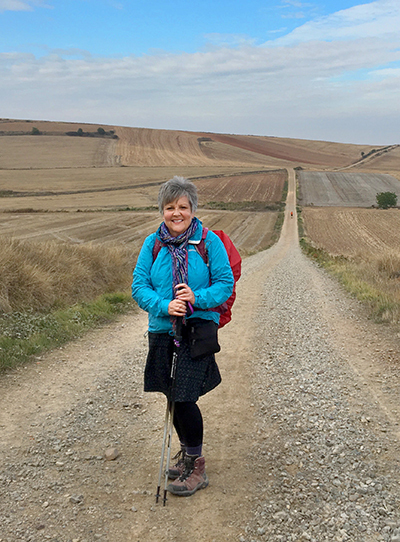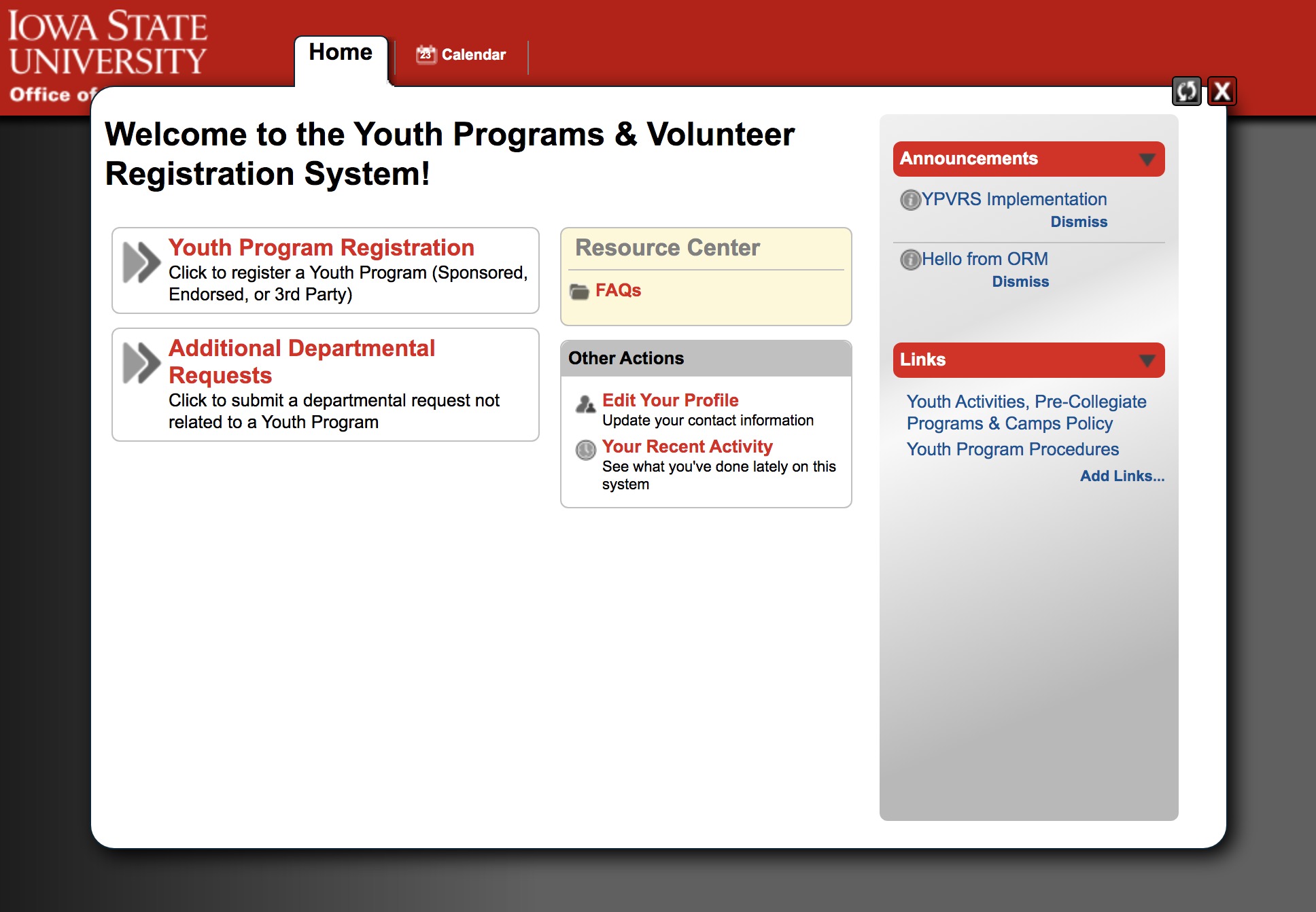Preparing for play

Photo by Christopher Gannon.
An estimated 3,500 cubic yards of sand delivered last week created the playing surface for eight volleyball courts at recreation services' new southeast complex east of Jack Trice Stadium. Workers also are making progress this month on the service building, which will include an office, restrooms and equipment storage.
The grass fields were seeded in early May so, barring drought or a flood this summer, the complex should be ready for student use this fall. As COVID-19 safety precautions allow, rec services will offer flag football, soccer, ultimate, sand volleyball and softball leagues on variable, overlapping fields and other tournaments at the complex, which also will be available for student drop-in use. The site includes electric scoreboards and lighting for night play. A pond in the southwest corner of the 40-acre complex will be used to irrigate the fields.
North and south field pods are separated by a central parking area and the service building. Original plans called for a combination of grass and gravel parking areas for rec services patrons, but a collaboration with the athletics department will create a milled asphalt lot with about 700 stalls, one of the final pieces of the project.
Recreation services is a self-funded auxiliary unit receiving no appropriation or tuition dollars.
Face coverings will be required when distancing isn't possible
Starting July 1, cloth face coverings or face shields will be required on campus in any area where physical distancing isn't possible, strengthening previous guidance that wearing a face covering was expected in such situations.
Sharing plans with public
A June 24 news release reiterated plans senior leaders have made to mitigate the risk of COVID-19 as employees and students return to campus this summer and fall. Highlights include:
- Reducing campus density campus by offering more online teaching, adjusting schedules and limiting capacity to 50% in classrooms and other facilities, including venues
- Enhanced health measures, including a requirement to wear face coverings when physical distancing isn't possible and plans for testing and contract tracing
- A joint social responsibility campaign, "Cyclones Care," with the city of Ames and Story County to support compliance with mitigation strategies
President Wendy Wintersteen announced the change in a June 24 campus message that also included information about coronavirus testing and new mental health training.
Requiring students and employees to wear face coverings in classrooms, offices and other areas where it's difficult to remain 6 feet from others is an important way to reduce the risk of COVID-19 as Iowa State resumes its academic mission as a residential university, Wintersteen said in the campus message. She also encouraged ISU community members to cover their faces when unable to distance in off-campus crowds, such as when shopping or riding CyRide.
"Face coverings are a key element of our 'new normal.' Modeling this requirement and educating our campus with care and compassion are how we can help everyone understand the importance of this and other mitigation efforts," Wintersteen said.
Wintersteen said she doesn't want face coverings to become a source of conflict at ISU, and positive reinforcement is the best method for encouraging compliance. A "Cyclones Care" messaging campaign is being developed in partnership with the city Ames and Story County to promote face coverings, physical distancing, hand washing and other mitigation practices.
Senior leaders are developing policies and procedures for enforcing the face covering requirement when needed, Wintersteen said. In general, faculty and staff should contact their supervisor and students should contact the dean of students office regarding concerns about individuals not wearing face coverings.
The university is providing two free cloth face coverings to each student and all employees who request them. Units and departments should reserve face coverings as a group through central stores. Face shields also are available. Plans for distributing student face coverings are in the works.
Testing
No one experiencing coronavirus symptoms should go to work or class. Faculty and staff who have symptoms or were exposed to someone with COVID-19 should inquire with their primary care provider about being tested. Thielen Student Health Center and the Veterinary Diagnostic Laboratory are developing plans for on-campus testing for faculty and staff. More information will be shared soon about a comprehensive testing and contract tracing program.
Thielen Student Health Center is providing free testing for students enrolled for summer or fall classes if they meet Iowa Department of Public Health testing criteria.
Positive results
Students, faculty and staff who test positive should report the results via this confidential online form.
Employees who test positive can only return to work after they've met three criteria:
- Ten days have passed since the first symptoms appeared
- No fever for 72 hours without the use of medicine
- Other symptoms such as cough and shortness of breath have improved
Resources
Uncertainty and change are stressful, and mental health is an important priority. All students, faculty and staff are encouraged to take the Kognito mental health training that will be available through Learn@ISU beginning July 1.
Other resources are available through ISU WellBeing, ISU Extension and Outreach and the Keep Community. Stay Informed. Be Well. campaign by Student Wellness.
Online forums for senior VP finalists begin July 1
Four finalists have been identified in the search for the next senior vice president for student affairs. Campus interviews will be conducted online on the following days:
- Candidate 1, June 29 and July 1
- Candidate 2, June 30 and July 2
- Candidate 3, July 6 and July 8
- Candidate 4, July 7 and July 9
Candidate names and resumes will be posted on the search website one day before their visit.
Online public forums will be held on the second day of each visit (1-1:45 p.m.). Forum links also will be available on the search website.
- Candidate 1, Wednesday, July 1
- Candidate 2, Thursday, July 2
- Candidate 3, Wednesday, July 8
- Candidate 4, Thursday, July 9
The forums will be recorded and archived for later viewing after the campus visits have concluded. Participants are invited to submit an online candidate feedback form after each forum.
The next senior vice president for student affairs will succeed Martino Harmon, who will become vice president for student life at the University of Michigan, Ann Arbor, on July 1. Erin Baldwin, assistant vice president for student health and wellness and director of the Thielen Student Health Center, has served as interim senior vice president since June 5.
Related stories
- Baldwin will serve in student affairs post, April 20, 2020
- Harmon accepts leadership post at Michigan, March 26, 2020
Training helps employees spot and address their biases
Everyone is biased in certain ways, but trying to identify and address your bias isn't as instinctive. A training session available to faculty and staff provides tools for considering the effects of those blind spots and correcting them.
All employees are encouraged to take the 20-minute online training on managing bias, a program offered as part of the university's commitment to equity and inclusion.
"Those who have the heart to try to make a more welcoming campus need to know that it's not done just in an aspirational way. You have to be actively engaged in the work of managing your thoughts and your processes," said Margo Foreman, assistant vice president for diversity and inclusion and equal opportunity.
The managing bias sessions filled a need among Iowa State's training programs, Foreman said.
"It gives folks the ability to find a comfort zone to say, 'I have bias,' as well as, 'How do I actually address it?' It's OK to admit that it's natural to have biases, but those biases can't and shouldn't impact individuals negatively in the workplace," she said.
"This is a really timely addition to our Learn@ISU catalog," said Kristi Darr, interim vice president for university human resources. "It's a short but very insightful and effective training that we think our community will really enjoy and benefit from."
The training was created by Everfi, the company behind other ISU training programs such as the Title IX training on discrimination and sexual misconduct for employees and AlcoholEDU for students. The new training opportunity for faculty and staff came as part of the response to activism last year by Students Against Racism. It's been available since early 2020 but is especially relevant now as widespread Black Lives Matter protests prompted by the killing of George Floyd in Minneapolis have intensified the focus on anti-racism measures.
"Sometimes you have to capitalize on these things. If people are more aware and eager to find ways to improve their knowledge base, I'm happy that this is available for them to take advantage of," Foreman said.
The managing bias training is for employees, but a new student training program covering much of the same material is being developed, Foreman said.
Go to Learn@ISU to access the training. Search the catalog for "managing bias." Completing the training is worth 25 Adventure2 points for those enrolled in the employee wellness program.
Bratsch-Prince reappointed as associate provost
Dawn Bratsch-Prince, associate provost for faculty and professor of Spanish, has been reappointed to a five-year term.

Dawn Bratsch-Prince in the Spanish meseta during one of her journeys to complete the Camino de Santiago, a Catholic pilgrimage across northern Spain. Submitted photo.
In making the announcement, senior vice president and provost Jonathan Wickert praised Bratsch-Prince's countless efforts to enrich the faculty experience at Iowa State.
"Dawn is a great advocate for faculty, from their first days on campus, through the promotion and tenure process, mentoring academic leaders and helping them earn the accolades they deserve," Wickert said. "These activities are not always noticed by the campus community at large, but they are vital to faculty success and contribute greatly to a vibrant academic community."
As associate provost for faculty, Bratsch-Prince provides leadership for Iowa State's faculty success efforts. These efforts start with intentional recruiting, and extend to orientation and mentoring, promotion and advancement, honors and awards, and leadership development. Bratsch-Prince works closely with the university chairs cabinet to onboard, support and provide ongoing professional development for academic department chairs. She also oversees the Center for Excellence in Learning and Teaching, the office of institutional research and the ISU ADVANCE and Emerging Leaders Academy programs.
Over the last five years, Bratsch-Prince has led a broad effort to improve the experiences of term faculty, including working with the Faculty Senate to create new titles and advancement paths implemented last year. She has also worked with the office of the vice president for research to create a faculty honors and awards hub, leading to an increase in awards in the last three years.
"It is a great privilege to serve my peers as associate provost, and I am grateful to work with colleagues who truly want to create the best environment for their students and each other," Bratsch-Prince said. "I look forward to continuing to help faculty develop and advance at all career stages, as well as to strengthening institutional efforts to ensure that all faculty, staff and students feel welcomed, included and valued in our campus community."
A member of the Iowa State faculty since 1990, Bratsch-Prince has served the university in numerous roles, including as chair of the department of world languages and cultures and associate dean in the College of Liberal Arts and Sciences. In the LAS college, her portfolio included international activities and study abroad, distance and online education, faculty orientation, faculty and staff awards and service as director of the international studies program and interim director of the women's studies program.
Bratsch-Prince initially was appointed associate provost in 2010 and also served as the university's chief diversity officer from 2010 to 2013.
A native of Brooklyn, New York, Bratsch-Prince earned her bachelor's and master's degrees in Spanish from New York University and a doctoral degree in romance philology from the University of California, Berkeley. She has published two books and numerous articles in the area of medieval Iberian studies focused on historical linguistics, medieval translation and women's writings.
Employee tuition reimbursement to be limited to ISU courses
Editor's note: On July 28, university human resources announced a temporary modification to changes outlined in this story: Program participants who, in the last year, took courses for credit at universities and colleges other than Iowa State may apply for tuition reimbursement for courses at those schools for two more semesters: fall 2020 and spring 2021. The extension is intended to give past participants more time to identify other financial resources if they opt to continue in their current academic programs.
Beginning fall semester and thereafter, the university's employee tuition reimbursement program will be limited to Iowa State courses. Non-ISU courses no longer will be reimbursed. Reimbursement applications for courses taken this spring or summer are not impacted.
University senior leaders made the decision earlier this month as part of budget-cutting discussions in light of reduced state support and tuition income, two key revenue sources for university operations.
Fall semester
Application window: July 1-Aug. 14
The tuition reimbursement program supports the professional development efforts of merit and professional and scientific employees on nontemporary appointments of at least 20 hours per week. Staff must work at the university for one year before they can apply to participate in the program.
All other benefits and guidelines of the program remain the same, including:
- Applicants may request tuition reimbursement for up to four college credits per semester, up to three times per year.
- Applicants should be enrolled in courses that are either part of a degree program or will enhance the employee's current position at Iowa State.
- Applicants must receive at least a C grade for undergraduate courses (B grade for graduate courses) to qualify for tuition reimbursement.
The application period for fall semester 2020 tuition reimbursement opens Wednesday, July 1, and runs through Friday, Aug. 14. No applications for fall semester will be accepted after Aug. 14. The application is completed in AccessPlus (under the employee tab, select Tuition Reimburse in the left column).
Questions about the program may be emailed to tuitionreimbursement@iastate.edu.
New online system simplifies youth program registration

A screen shot of the new youth program registration system.
A new online system launched this week simplifies registration and approval of university-sponsored youth programs, automating much of what's been a time-consuming process.
Youth programs must be approved by the director or chair of the sponsoring unit or department and the relevant dean or vice president. Program staff, whether ISU employees or volunteers, need to take a child abuse awareness and prevention training course, undergo a background check (different levels depending how they'll be interacting with children) and fill out an agreement that includes emergency contact information.
Depending on the program, other paperwork might be necessary. There's a form for programs that include contact with animals and another for online activities. If program staff will be operating a vehicle, a check of their driving record is mandated.
Securing the required sign-offs and documentation has meant back-and-forth emailing of forms printed, signed, scanned and sent at each step. That’s burdensome for the office of risk management, which administers the registration process for youth programs, which served more than 46,000 participants in fiscal years 2019. It can also be daunting for program leaders, especially those who oversee multiple programs.
"It's not necessarily what you want to spend your time on when you're running a program," said Brandy Cunningham, risk management's youth and volunteer programs manager.
Under the new system, automatic emails route approval requests to leaders who authorize programs and onboarding documents to program staff. The registration software generates prompts for needed forms, and program and department/college leaders can see updated data about what steps haven't been fulfilled, sending reminders via the system if needed.
The new system prevents program staff from filling out redundant forms by automatically recognizing if they've taken the child abuse training or have a valid background or driving record check on file.
"The system we're rolling out has so many features that our program leaders and volunteers will really benefit from. This has been a long time coming," Cunningham said.
Accessing information collected on youth programs will be easier under the new system, too. Risk management can quickly retrieve emergency contacts for program staff or look up every program involving a particular individual.
"That's just peace of mind," Cunningham said.
The system also creates a searchable database that makes overall program assessment more effective, allowing leaders to identify program trends or deficiencies, she said.
The project has been in the works for about three years. The platform provided by a third-party vendor, Ideal-Logic, will be accessible with an Iowa State NetID. The launch of web-based registration comes with some updates to the youth programs website, including the addition of FAQ content, improved navigation and program administration tips.
Risk management will offer small-group training sessions first to program leaders who have events planned in the summer or fall and then expand training opportunities to all program leaders. Sign up for a training session online. Step-by-step written aids also will be available.
Email questions about the new system to youth@iastate.edu.
